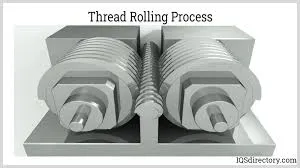
-
 Afrikaans
Afrikaans -
 Albanian
Albanian -
 Amharic
Amharic -
 Arabic
Arabic -
 Armenian
Armenian -
 Azerbaijani
Azerbaijani -
 Basque
Basque -
 Belarusian
Belarusian -
 Bengali
Bengali -
 Bosnian
Bosnian -
 Bulgarian
Bulgarian -
 Catalan
Catalan -
 Cebuano
Cebuano -
 Corsican
Corsican -
 Croatian
Croatian -
 Czech
Czech -
 Danish
Danish -
 Dutch
Dutch -
 English
English -
 Esperanto
Esperanto -
 Estonian
Estonian -
 Finnish
Finnish -
 French
French -
 Frisian
Frisian -
 Galician
Galician -
 Georgian
Georgian -
 German
German -
 Greek
Greek -
 Gujarati
Gujarati -
 Haitian Creole
Haitian Creole -
 hausa
hausa -
 hawaiian
hawaiian -
 Hebrew
Hebrew -
 Hindi
Hindi -
 Miao
Miao -
 Hungarian
Hungarian -
 Icelandic
Icelandic -
 igbo
igbo -
 Indonesian
Indonesian -
 irish
irish -
 Italian
Italian -
 Japanese
Japanese -
 Javanese
Javanese -
 Kannada
Kannada -
 kazakh
kazakh -
 Khmer
Khmer -
 Rwandese
Rwandese -
 Korean
Korean -
 Kurdish
Kurdish -
 Kyrgyz
Kyrgyz -
 Lao
Lao -
 Latin
Latin -
 Latvian
Latvian -
 Lithuanian
Lithuanian -
 Luxembourgish
Luxembourgish -
 Macedonian
Macedonian -
 Malgashi
Malgashi -
 Malay
Malay -
 Malayalam
Malayalam -
 Maltese
Maltese -
 Maori
Maori -
 Marathi
Marathi -
 Mongolian
Mongolian -
 Myanmar
Myanmar -
 Nepali
Nepali -
 Norwegian
Norwegian -
 Norwegian
Norwegian -
 Occitan
Occitan -
 Pashto
Pashto -
 Persian
Persian -
 Polish
Polish -
 Portuguese
Portuguese -
 Punjabi
Punjabi -
 Romanian
Romanian -
 Russian
Russian -
 Samoan
Samoan -
 Scottish Gaelic
Scottish Gaelic -
 Serbian
Serbian -
 Sesotho
Sesotho -
 Shona
Shona -
 Sindhi
Sindhi -
 Sinhala
Sinhala -
 Slovak
Slovak -
 Slovenian
Slovenian -
 Somali
Somali -
 Spanish
Spanish -
 Sundanese
Sundanese -
 Swahili
Swahili -
 Swedish
Swedish -
 Tagalog
Tagalog -
 Tajik
Tajik -
 Tamil
Tamil -
 Tatar
Tatar -
 Telugu
Telugu -
 Thai
Thai -
 Turkish
Turkish -
 Turkmen
Turkmen -
 Ukrainian
Ukrainian -
 Urdu
Urdu -
 Uighur
Uighur -
 Uzbek
Uzbek -
 Vietnamese
Vietnamese -
 Welsh
Welsh -
 Bantu
Bantu -
 Yiddish
Yiddish -
 Yoruba
Yoruba -
 Zulu
Zulu
CE Certified Rebar Thread Rolling Machine for Enhanced Construction Efficiency and Performance
CE Certification of Rebar Thread Rolling Machines Ensuring Quality and Safety in Construction
In the construction industry, the integrity and reliability of materials are paramount, and this is where rebar (reinforcement bar) plays a critical role. Rebar provides necessary tensile strength to concrete structures, making the manufacturing processes involved in rebar production equally important. One such significant process is thread rolling, which enhances the bond between rebar and concrete, thus contributing to the overall structural performance. As demand for high-quality rebar increases globally, so has the need for advanced machinery, such as rebar thread rolling machines. Among the critical factors affecting the marketability of such machinery is compliance with safety and quality standards, exemplified by CE certification.
CE Certification of Rebar Thread Rolling Machines Ensuring Quality and Safety in Construction
Rebar thread rolling machines are designed to produce high-precision threads on the ends of rebar, allowing them to be mechanically connected with high strength. The machine uses a process known as cold rolling, which deforms the metal without significantly raising its temperature. This technique results in finer, more durable threads compared to traditional methods. However, the complexity of the machinery necessitates strict adherence to safety protocols to mitigate risks such as accidental injuries or equipment failure during operation.
ce certification rebar thread rolling machine

The process of obtaining CE certification for rebar thread rolling machines involves several critical steps. The manufacturer must conduct thorough risk assessments to identify potential hazards associated with the machinery's operation. This assessment covers various aspects such as electrical safety, mechanical hazards, and noise levels. Once the risks have been identified, appropriate measures must be implemented to mitigate them. These measures can include the installation of safety guards, emergency stop buttons, and the incorporation of fail-safe systems.
After ensuring compliance with safety protocols, the manufacturer must compile technical documentation that demonstrates the machine's compliance with relevant EU directives. This documentation typically includes design drawings, technical specifications, and evidence of testing conducted to verify safety claims. Once the technical documentation is complete, the manufacturer may seek an independent third-party assessment from a notified body, which reviews the documentation and conducts tests on the machinery to ensure compliance.
Upon successful assessment, the CE marking can be affixed to the rebar thread rolling machine, indicating compliance with EU standards. This not only enhances the machine's market value but also instills confidence among customers regarding its safety and efficacy.
In summary, obtaining CE certification for rebar thread rolling machines is a crucial step in the manufacturing process that underscores a commitment to quality and safety. It enables manufacturers to differentiate their products in a competitive market, while also addressing the essential safety and environmental concerns of the construction industry. As the global construction sector continues to evolve, the ability to produce high-quality, CE-certified threading machines will play a vital role in shaping the future of rebar utilization in various infrastructures. By adhering to these stringent standards, manufacturers not only contribute to safer construction practices but also enhance the durability and reliability of the structures built with their materials.
